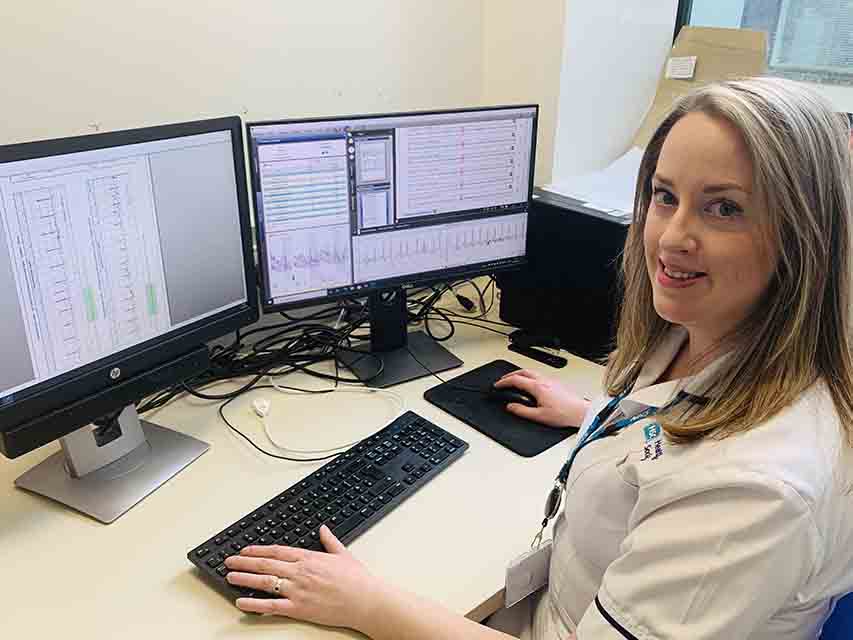Technological Advancements at the heart of healthcare science week
“Twenty years ago this would not have been possible.”
As we celebrate Healthcare Science Week, the Cardiac and Respiratory Investigation Units in the South Eastern HSC Trust, who help diagnose 80 per cent of all cardiac and respiratory conditions, have been explaining the fantastic advances in science which are invaluable for patients today.
The Units comprise of Clinical Physiologists, better known as ‘Rhythm Specialists’, Echocardiographers (ECHO) and Respiratory Physiologists who are at the fore when it comes to diagnosing and treating heart and lung diseases.
Senior Cardiac Physiologist, Laura Toal added: “With the advancements in science, how we treat and manage our patients has changed drastically. My role within the Trust is as a Heart Rhythm Specialist.
“I programme implantable cardiac devices, including pacemakers and loop recorders.

“We are now able to provide a range of remote monitoring services so a patient can have their pacemaker check carried out from their own home without having to come to the hospital.
“We receive alerts from their devices if there are any untoward heart rhythms or device issues which need addressed by a doctor.
“This is great for patients with accessibly needs or for patients who may live a greater distance away from the hospital.”
Cardiac Physiologists play a vital role in essential Cardiology Services within the hospital setting, including emergency care, theatres and direct access GP care, where they perform, analyse, report and advise on a range of diagnostic investigations such as ECG, blood pressure monitoring and exercise stress testing.
Laura described how the Cardiac Investigation Unit works as an intricate team.
She said: “We have a team of very skilled cardiac sonographers in our BSE (British Society of Echocardiography) accredited ECHO department who image the heart, to assess the valves, blood flow and structure of the heart.
“Our colleagues in the Respiratory Investigations team provide a series of tests to look at lung function and other studies including sleep studies.”
Laura said that “while the first successful pacemaker dates back to 1958, the advancements in science means now that the Cardiac team treats and manages its patients is this amazing way.
“And the benefits can be seen every single day across the South Eastern HSC Trust.”


























